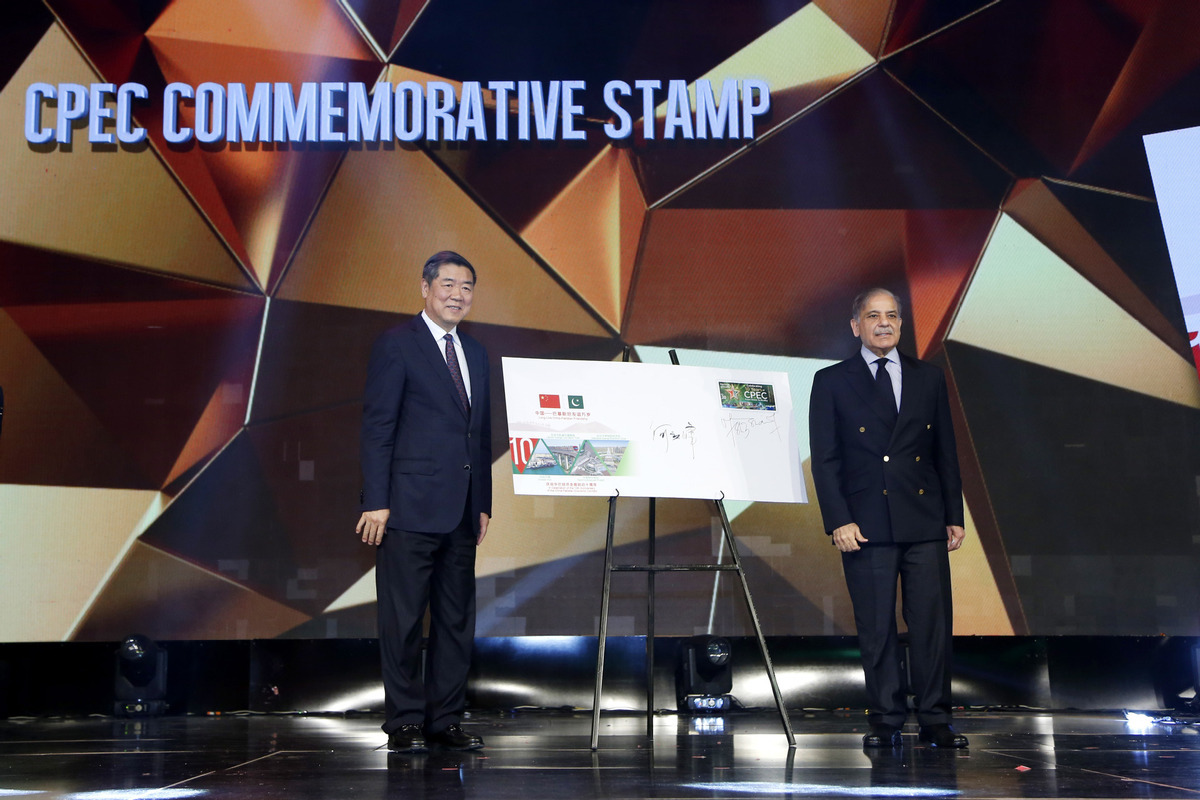CPEC brings a decade of benefits to Pakistan
By Faisal Zahid Malik | China Daily Global | Updated: 2023-08-03 09:12

Inspired by President Xi Jinping's vision of regional connectivity and a people-centric development model, the China-Pakistan Economic Corridor is an important part of the Belt and Road Initiative, and its flagship project, Gwadar Port, is the jewel in the CPEC crown.
The CPEC has played a significant role in fostering economic development and cooperation between China and Pakistan, benefiting both nations. The ceremony to celebrate 10 years since the establishment of the economic corridor, attended by Chinese Vice-Premier He Lifeng, a special envoy of President Xi, exemplified the success of the initiative and further strengthened the strategic partnership between the two countries.
The CPEC is a massive infrastructure and economic development project with the aim of enhancing connectivity and trade between China and Pakistan. As Vice-Premier He visited Pakistan to commemorate this milestone, it is crucial to critically assess the impacts and consequences of the ambitious initiative.
The CPEC has undeniably brought numerous benefits to Pakistan's economy. The project has resulted in the construction of highways, ports and energy infrastructure, leading to improved transportation and energy efficiency. These developments have had a positive impact on the lives of millions of Pakistanis by providing better access to resources and creating employment opportunities.
Furthermore, the CPEC has strengthened bilateral ties between China and Pakistan, fostering a strategic cooperative partnership. This collaboration has not only bolstered economic and financial cooperation, but has also facilitated people-to-people exchanges and cultural ties, promoting mutual understanding and friendship between the two nations.
China's investment in Pakistan has also been instrumental in boosting the country's foreign direct investment and attracting other international investors to the region. The CPEC's success has positioned Pakistan as an attractive destination for businesses seeking to capitalize on the opportunities offered by this strategic corridor.
It is essential to acknowledge the positive contributions this initiative has made to bilateral relations and economic growth. The CPEC has undoubtedly brought significant advancements to Pakistan's infrastructure and economy, improving the lives of many citizens. The initiative has not only upgraded Pakistan's infrastructure, but has also opened up job opportunities for skilled labor. This has significantly contributed to the labor market, which was abundant with skilled labor but no job vacancies.
This is not the only time our neighbor has helped us in the past 10 years. China has invested almost $30 billion, primarily in energy and infrastructure projects. It has bailed out Pakistan at critical junctures when the latter was in danger of becoming bankrupt. Beijing refinanced loans, allowing Pakistan to preserve its foreign reserves at a level sufficient to prevent default. In addition, China recently provided a $2.3 billion loan for two years, providing Pakistan with much-needed breathing room in the face of decreasing foreign reserves.
China has also completed major projects under the CPEC in Gwadar that, in addition to Gwadar Port, include the Gwadar Power Plant, the distribution of 2,000 boat engines to the fishermen of Gwadar, the Khuzdar-Panjgur transmission line that connects Makran with the national grid, the new Gwadar International Airport project, the Pak-China Friendship Hospital, the Pak-China Technical and Vocational Institute in Gwadar, the Gwadar East Bay Expressway project and the Gwadar Free Zone.
The success of the CPEC lies in maintaining a balance between economic development and responsible financial management. With careful planning, transparent governance and effective utilization of resources, the CPEC can continue to be a catalyst for positive change in Pakistan and deepen the economic cooperation between China and its all-weather friend Pakistan.
The author is editor-in-chief of the Pakistan Observer. The views do not necessarily reflect those of China Daily.
























